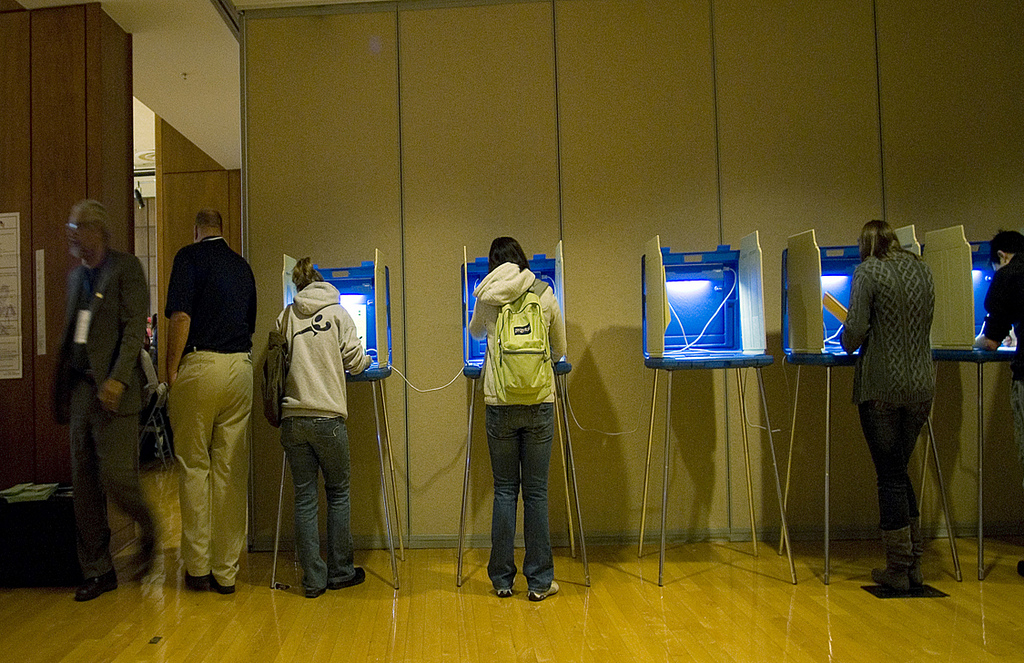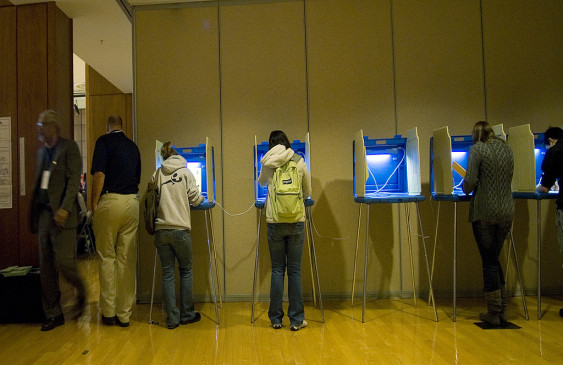People know it when democracy isn’t working well. We hear a lot about gerrymandering, Citizens United, and bitter partisanship, as culprits. And we know what democracy should look like: Voters want a voice, they want to be listened to by their representatives, they want their votes to matter.
It’s encouraging that polling found majority support for three system reforms that some probably never heard of: ranked choice voting, multimember districts, and citizen redistricting commissions.
But when it comes to solutions, people don’t tend to think about improving voting systems.
So, it’s encouraging that polling by the University of Maryland’s Program for Public Consultation found majority support for three system reforms that some probably never heard of: ranked choice voting, multimember districts, and citizen redistricting commissions. (These three reforms comprise new legislation called The Fair Representation Act.)
There’s a “readiness and an openness,” to voting system reforms, Steven Kull, the program’s director said at a DC briefing hosted by FairVote. “Generally people believe that the public is less polarized than Congress,” he added. “There is an overwhelming view that voters should have more influence in Congress.”
The Program for Public Consultation employs a testing method called a “policymaking simulation.” Respondents are asked what policy recommendation they’d make to to their congressmember after being briefed on each proposal and given strongly-worded arguments for and against. They’re also asked to rate whether each is acceptable, tolerable or unacceptable.
Overall, as Kull summarized, “arguments in favor of each do quite well, arguments against don’t do as well.” Each idea garnered majority support. Generally, Democrats are on board. Republicans have reservations, but they are not dead set against these ideas. In fact, all three proposals were seen as at least tolerable by more than two-thirds of respondents, including super-majorities of Republicans and Democrats.
When it came to respondents’ final policy recommendations, 66 percent of respondents—including 53 percent of Republicans, 80 percent of Democrats and 62 percent of independents—favored having congressional districts drawn by a nonpartisan commission of citizens. Only 19 percent found the idea unacceptable, including 29 percent of Republicans and 10 percent of Democrats.
Ranked choice voting, or “instant runoff” voting, was favored by 55 percent overall, including 64 percent of Democrats and 55 percent of independents. While just 46 percent of Republicans recommended the idea (and 52 percent were opposed), all-out resistance to the idea is considered low for this kind of testing. Just 29 percent said the idea would be unacceptable, including 37 percent of Republicans and 21 percent of Democrats. Notably, in “very red” Congressional districts, support was 56 percent and in “very blue” it was 55 percent.
Multi-member districts were favored by 55 percent, including 66 percent of Democrats and 54 percent of independents. Among Republicans, 44 percent favored the idea with 53 percent opposed. But here too opposition is not intense; only 27 percent said it would be unacceptable, including 34 percent of Republicans and 20 percent of Democrats. “Very red” districts were split, 49 percent in favor and 47 percent against. In “very blue” districts, support reached 58 percent.
The point here wasn’t testing messages. But it’s worth noting that, by a 20 point margin or bigger overall, and across the political spectrum, voters found favorable arguments more convincing than opposition arguments. Even the pernicious negatives like “it’s too complicated” and “it’s not worth all the trouble” did poorly. Messages about empowering voters win out.
For example, the two messages presented in favor of ranked choice voting—focused on making sure winners truly have the support of a majority of voters, giving third party candidates a chance, and avoiding the spoiler effect—were convincing to 73 and 75 percent overall, respectively. They were also convincing to 67 and 71 percent of Republican voters, and 73 and 70 percent of independent voters. (You can find the exact wording here).
When it comes to talking about multi-member districts, there seems to be appeal—also in the mid-70 percent range and holding strong across party lines—to the idea that elected representatives would more accurately mirror the partisan balance in their state, making them more accountable to voters, and making sure voters in the minority aren’t left out entirely. As Jamie Raskin, a co-sponsor of the Fair Representation Act and representative from Maryland put it at the polling briefing,“Forty percent of the votes in your state should mean 40 percent of the seats in Congress or your state legislature, not 40 percent of the votes means zero percent of the seats.”
The survey was conducted online from September 7- October 3, 2017 with a national probability-based sample of 2,482 registered voters. The margin of error is +/- 2.0 percent.











UpWithVoting
One way to improve the voting system for Sound Transit boardmembers would be to provide us with direct voting rights. After all, that’s what the Federal Constitution demands. The indirect voting rights provided don’t give residents nearly enough control over the legislators comprising that policy-making body:
https://www.scribd.com/document/376834294/Sound-Transit-Claims-Outline